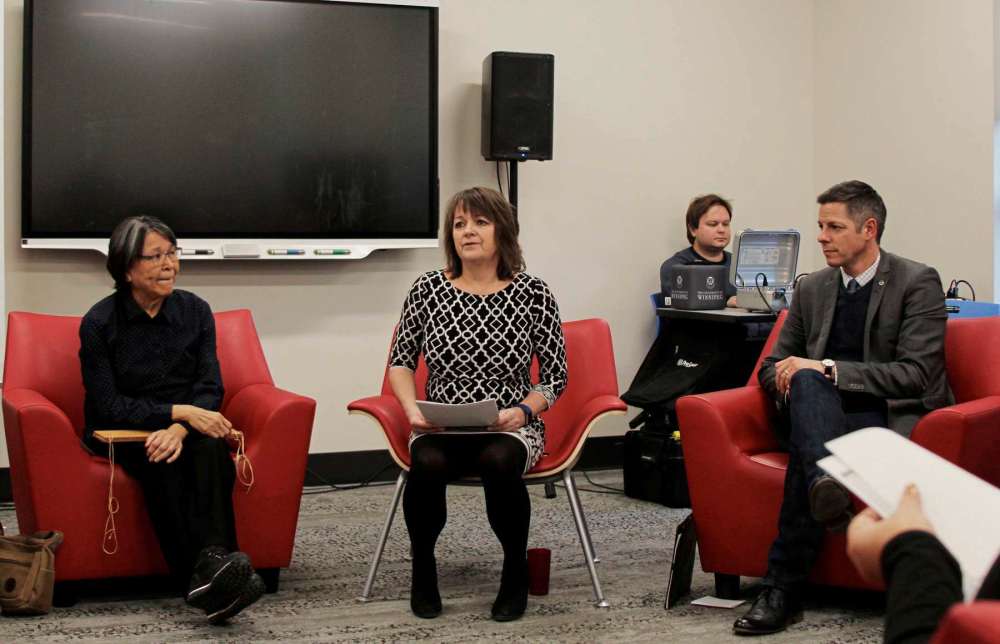Funding to allow U of W program expansion
Advertisement
Hey there, time traveller!
This article was published 06/12/2019 (2249 days ago), so information in it may no longer be current.
A funding investment of $500,000 over five years will allow more students to take part in the University of Winnipeg’s Inner-City Work Study program, an initiative that has proven to be a valuable asset to the community and its residents.
The funding was officially announced at a sharing circle held at the Department of Urban and Inner-City Studies (Merchants Corner, 541 Selkirk Ave.) on Dec. 4.
The donation from RBC’s Future Launch campaign will expand the program’s capacity from 20 to 30 students annually.

Students, both Indigenous and non-Indigenous, who enrol in the program learn and work together in Winnipeg’s inner-city neighbourhoods in collaboration with community-based organizations over 15 weeks.
“Students explore intergenerational, geographically concentrated poverty and learn strategies centred on community practice, citizen mobilization, engagement, empowerment, and reconciliation,” a press release stated.
“It’s that idea of breaking barriers, building bridges; that we’re bringing Indigenous, non-Indigenous, people from the suburbs, people from the inner city, together,” said Shauna Mackinnon, chair of the Department of Urban and Inner-City Studies.
“A lot of these students, the ones that come maybe from the south side of the city, have never been (to the inner city) before. They go back to wherever it is that they live and they’ve got a different view of the city, a different view of the North End, and they share that with their friends.”
Annette Armstrong is the executive director of Indigenous Women’s Healing Centre, one of the local organizations that has mentored some students from the program.
“It’s really good for entry-level students, and/or students that might not be familiar with some of the socioeconomic and social issues of the North End and inner city; to see first-hand who is accessing these services, what kind of needs that they have, what kind of challenges there are, but also what kind of successes they experience on a day-to-day basis.
“I think what I appreciate the most about the Urban and Inner-City Studies program is the fact that the students can do practicums with organizations that are trying to help the people that are looking for it the most,” Armstrong said.
Holliday Holmes-Fisher, 25, fulfilled her work placement at the Indigenous Women’s Healing Centre, where she is now employed.
“You can only learn so much by sitting there reading a book, so until you have the hands-on experience working in a community with people who need help and need resources, it really opens your eyes to what’s out there.
“I’m Métis myself, and I didn’t know (anything) about my Indigenous background until I came to university, so I wanted to work with an Indigenous organization and I figured working with women would really help me dig down deep to my cultural roots,” Holmes-Fisher said.
The Inner-City Work Study program was set in motion by Coun. Brian Mayes (St. Vital) and designed at the U of W.
The university works with more than 30 community organizations to provide students the opportunity to gain experience working in the inner city.



